SaaS Showdown: Google Apps Vs. Microsoft Windows Live
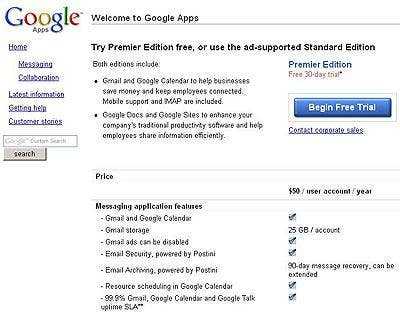
With the launch of its first formal reseller program for Google Apps Premier Edition, Google is now battling Microsoft directly in the channel with a full cloud computing productivity suite. Here's a look at some of the differences between Google Apps Premier Edition and Microsoft's Windows Live Essentials cloud computing environment.
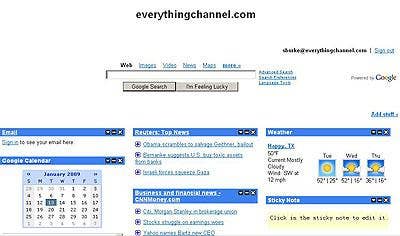
Google Apps Premier Edition is a full Software-as-a-Service (SaaS) office productivity suite that includes e-mail, word processing, spreadsheets, presentations, security and compliance.
Under a new channel program, Google partners receive $10 per year on a $50-per-user, per-year-subscription fee. Google said that partners maintain the billing relationship with the customer and prepay Google in advance for each one-year subscription.
The opening portal screen for Google Apps Premier Edition (shown) is the jumping-off point for all customer activity, with the end user's domain taking center stage. Google partners will not be able to private-label using their own brands on the domain. The portal page is a much more feature-rich jumping-off point than Microsoft's free Windows Live Essentials. Google wins hands-down against Microsoft in terms of portal page functionality and access to a full productivity suite, including calendar, Google Docs and Google Talk chat. It also includes links to news and business content. Here is a test page set up by Channelweb.com.
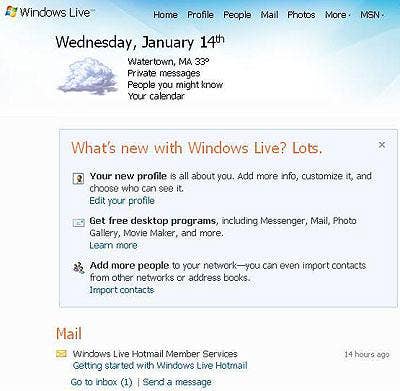
Microsoft's Windows Live Essentials opening screen for users is aimed at providing a more limited online experience than its Office productivity suite. The Windows Live Essentials portal page shown here is more about e-mail, instant messaging, sharing photos and blogging than a full-fledged productivity suite experience. With its bid not to completely cannibalize Office, Microsoft has effectively crippled the Windows Live experience. Google excels in cloud computing portal power.
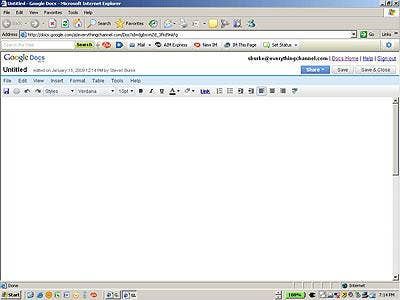
Google Docs, the bread-and-butter Google cloud computing word-processing application, looks a lot like Microsoft's own packaged Microsoft Word application. Windows Live Essentials also has a document creator called Writer aimed at blogging environments rather than full-fledged word processing. Take a look at Google Docs -- it's a full-blown word-processing powerhouse. Google crushes Microsoft in cloud computing word-processing functionality.
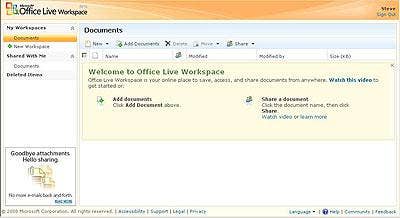
Microsoft has opted not to battle Google head-to-head with Windows Live word processing. It does have a blogging site and an Office Live Workspace that allows you to save 1,000 documents online in one place. Saving documents is one thing. Doing full-blown word processing in the cloud is another. Microsoft has made a big mistake in ceding this ground to Google. Here is a look at Office Live Workspace.
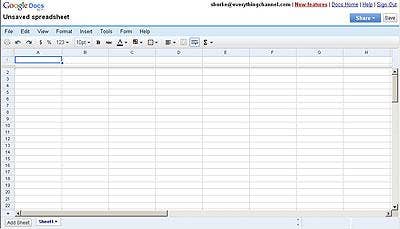
Google Docs' Spreadsheet, once again, is aimed at providing the same powerful capabilities users have come to expect from Microsoft's Excel spreadsheet application. Microsoft, meanwhile, is a no-show in the cloud computing spreadsheet category. This is a bone-crushing victory for Google, a sad statement given Microsoft's legacy as a spreadsheet leader.
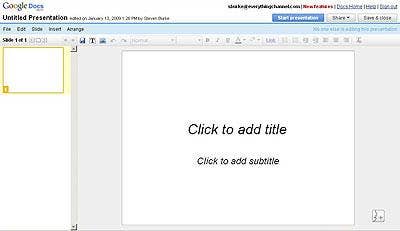
Google Docs includes a Microsoft PowerPoint killer aimed at providing users a simple but powerful online environment to build presentations that they can access from the Web. This is, once again, an area that Microsoft has failed to provide in Windows Live in the name of not cannibalizing its powerful PowerPoint packaged software offering.
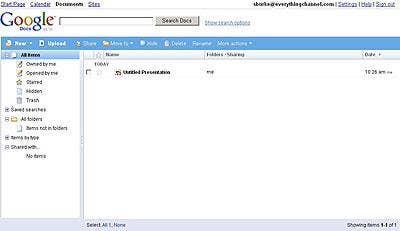
Google Docs provides the capability for users to search and store all manner of documents from word processing files to presentations to spreadsheets. Notice the ability in the left-hand navigation bar here to search everything from documents "Owned by me," "Opened by me" and "Starred." There's even a "Saved searches" function. This is Google clearly putting its searching prowess to good use in a standard cloud computing productivity suite. Score searching documents in the cloud for Google.
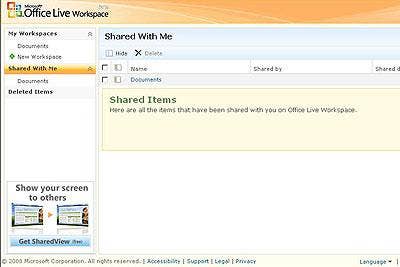
Microsoft's Windows Live and Office Live lag Google when it comes to searching for documents in the cloud. On the other hand, Microsoft has offered a powerful Office Live Workspace for sharing documents. For Microsoft, it's all about seamlessly tying the desktop experience, which it is aiming to preserve, with the cloud experience. Sharing documents from the standard Office application is a Microsoft strength. Score sharing from the standard Office productivity suite in Microsoft's favor.
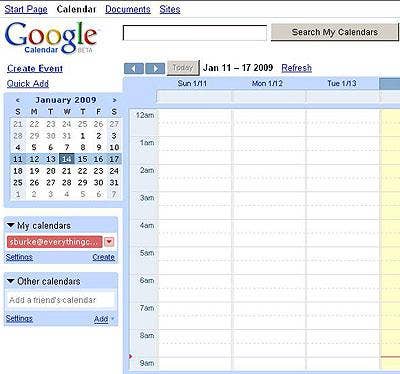
Google Calendar provides a full online calendaring program that goes head-to-head against a similar Windows Live Essentials offering or Microsoft's popular Outlook. Google, once again, leverages its strength in search to provide an outstanding capability to search "My calendars." Microsoft, however, does an outstanding job with its cloud computing calendar. Score this one for Microsoft.
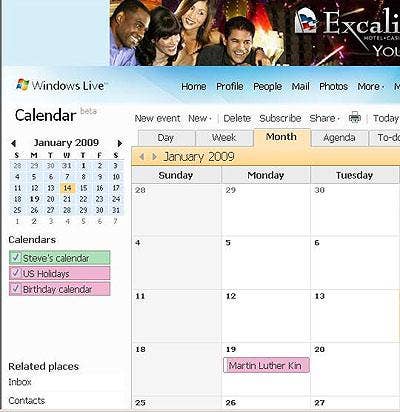
Windows Live Calendar is just a great, elegant and powerful cloud computing calendar. Give Microsoft credit for creating a powerful product that outshines Google's Calendar. We love the agenda and "To Do List" that is front and center, going the extra mile to make sure you stay on track day after day, week after week and month after month.
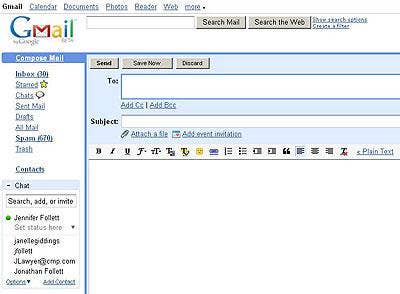
No doubt about it, Google has done an outstanding job with Gmail. It's a powerful, in the cloud e-mail application that is saving a good number of small, midsize and even some enterprise customers hundreds of thousands of dollars in Microsoft Outlook licensing fees. Google has a great mobile phone application for Gmail and a mind-numbing storage capability. It's hard to argue with Gmail. Give this one to Google.
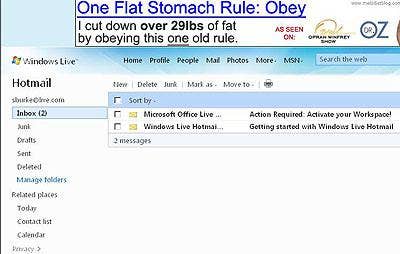
Windows Live Hotmail is a solid cloud computing mail product, but it pales in comparison to Google. Microsoft's strength here is obviously its ability to link tightly into Outlook with its Outlook Connector. No small matter, especially for legacy Outlook customers. Still, it's not enough to outdo Google's Gmail.
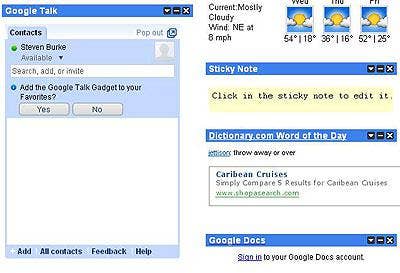
Google Talk provides a neat twist on the traditional instant messenger programs by adding the ability to make free Internet phone calls. Google calls it a richer instant communications experience. And it is. Google takes it to another level, leaving Microsoft Messenger in the dust.
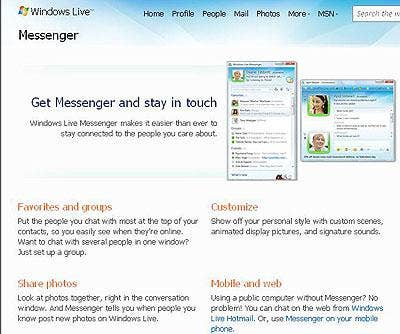
Windows Live Messenger also has a mobile phone capability and even some outstanding photo sharing functionality. Microsoft excels in collaboration and sharing with MSN/Windows live buddies, but falls short of that mark. All in all, it just doesn't have the muscle of Google Talk.
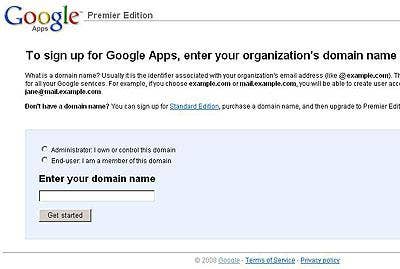
Google Apps Premier Edition. Google may have a long way to go when it comes to being channel savvy, but you've got to give the company props for its full cloud computing productivity suite experience. Google's emphasis on pushing into the cloud with strong functionality at any and all costs gives it a big competitive advantage against Microsoft, which has held back here in a bid to keep the standard Office productivity suite as a cash cow.
Microsoft needs to take off the handcuffs and battle Google in the cloud with all its technology prowess and channel muscle. As it stands now, Microsoft is not set to offer Office Web Applications -- lightweight versions of Word, Excel, PowerPoint and OneNote accessible through Web browsers -- until the next version of Office, which is due sometime in early 2010.